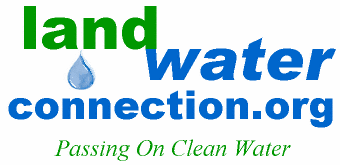
LAWN & GARDEN

LAWN & GARDEN
Lawn and garden pesticides (which can include insecticides, herbicides, fungicides, and rodenticides) and fertilizers are a threat to Rhode Island waterways. Even when pesticides are used properly, they can pose a risk to water resources and harm beneficial insects such as bees, beetles and spiders. When applied improperly, pesticides present even greater risks and can be harmful to human health. Many homeowners use more fertilizer on their lawns and gardens than is actually needed. Excess fertilizer can wash off your lawn or garden and enter your well water, or be carried to nearby waterbodies during a storm.
How You Can Help
1. PLAN PROPERLY: If you plan to use lawn and garden chemicals, have your soil nutrients tested and identify any pests you may be dealing with to make sure you use only what you need. UMass Amherst’s Soil and Plant Nutrient Testing Laboratory offers reliable and affordable soil testing that will help you figure out if your garden really needs fertilizer at all. Don’t buy more chemicals than you will actually use, so that you are not faced with excess to store or dispose of.
2. Proper Application: ALWAYS READ THE LABEL FIRST. It is a violation of federal and state law to apply any pesticides and fertilizer not in accordance with the label. Be sure that you read the ENTIRE label. The label can be quite long, but important information can be found throughout it. Watch out for information on proper set-backs when applying on your property like lakes, rivers, ponds and your well. Use a drop spreader, not a broadcast spreader, so all pellets land on your lawn and not the road or your waterways. Finally, do not fertilize near your private well.
3. Alternatives: Consider using natural fertilizers like compost instead of store-bought fertilizers. Compost provides beneficial nutrients to the soil and assists the soil in water retention for the plans. Consider using limited or no pesticides and instead tolerating some pests in your yard or garden. Even better, replace areas of lawn with natural areas that will require lower maintenance and have more benefits for local wildlife.
Where To Learn More
“Healthy Lawn Care and Renovation”
Click Here >
“Soil and Plant Nutrient Testing Laboratory”
Click Here >
Plant Protection Clinic
Click Here >
“Backyard Composting Tip Sheet”
Click Here >
This website was started with Mobirise site themes